













When a person works with colleagues and volunteers on a regular basis, it is inevitable that a closeness develops and that some good-natured ribbing often takes place. Such is the atmosphere during the casual down time of National Association of Conservation Districts (NACD) meetings, which are full of insightful discussions on how each state association and their conservation departments operate. These comparisons always lead to the friendly joke that Wisconsin is “different,” which evokes plenty of chuckles. But Wisconsin is so very different, and we are quite unique amongst the states and territories that make up the NACD.
What makes us so special? Let’s start with the state legislation that establishes county conservation committees and departments. Conservation in our state is so much a priority that it is built into the framework of our government. Next, think about the long-term commitment we make to developing and implementing land and water resource management plans. We have various specialized grants and funding mechanisms available to help complete our work. Our professionals are well-trained, dedicated, and competent. Every day they work under challenging circumstances and severe budget limitations, but still continue to meet conservation goals. Let’s not forget how local communities and elected officials also support our efforts by making conservation a priority. We’ve also built an effective state association—WI Land+Water—which has become a voice of advocacy for statewide conservation.
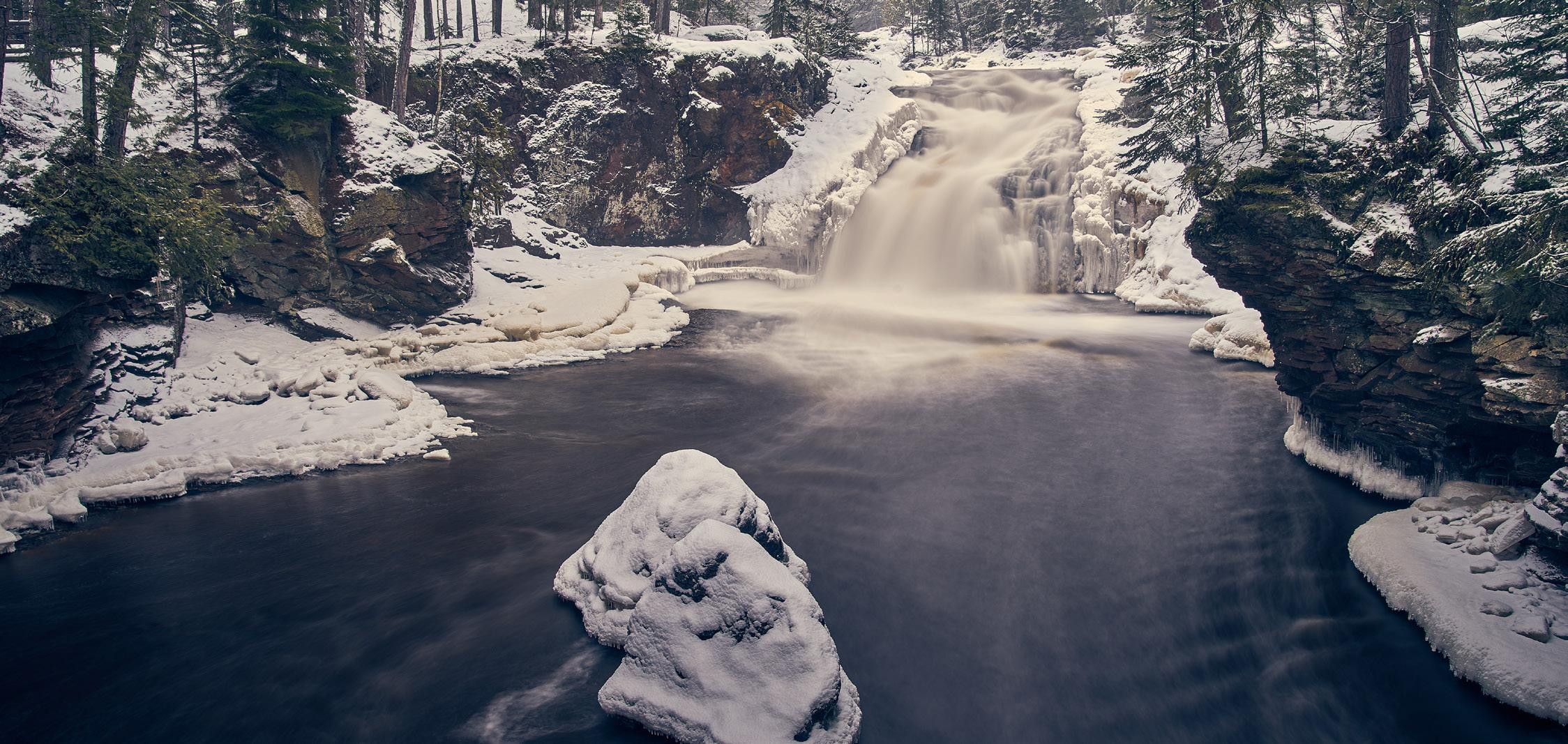
All of these attributes make Wisconsin exceptional in the field of conservation. Most other states do not enjoy the sophisticated system we have established, nor do they operate with our distinctive model of combining training, technical assistance, collaborative standards, education, and outreach. This model of focusing on tangible results is only achievable because all partners on the team do their part, are progressive in their advancement of best-management practices, and remain enthusiastic about protecting our beautiful natural resources. It works because we have passionate members on committees who spend their time agonizing over policy, ordinances, and resolutions that serve the overall mission. It is successful due to the unbelievable commitment of professional staff, who are among the most dedicated in the nation. And it is a direct consequence of the devotion from all our membership. So, with much gratitude we say thank you all, and Merry Christmas from your Board of Directors and staff of Wisconsin Land+Water.
Yours in conservation,


 Monte G. Osterman Board Chair
Monte G. Osterman Board Chair
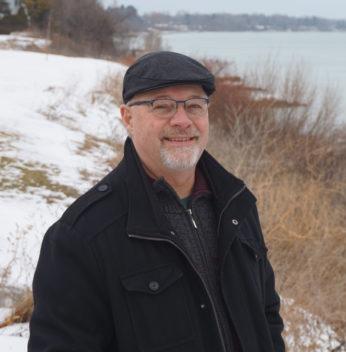
With fall elections behind us, the Legislature will be approving the 2023-25 state biennial budget in the spring of 2023. WI Land+Water will be working with legislators and partner organizations to advocate for the following two conservation budget priorities:
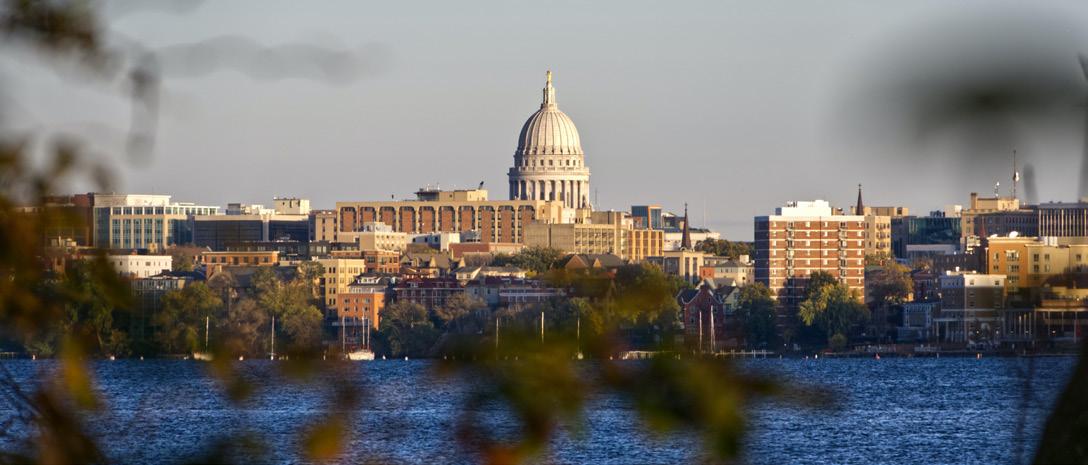
$18.7 million in stable, core funding support for county conservation department staffing from the DATCP Soil and Water Resources Management Program budget.
» This is a perpetual budget priority of WI Land+Water, but it looks slightly different this year. $18.7 million equals the staffing need identified by counties in DATCP’s Soil & Water Resource Management Program Joint Allocation; we consider this “core” funding support.
» By “stable” funding, we mean base funds—not one-time funds provided only for the biennium.
Improve and modernize the DATCP Farmland Preservation Program (FPP) by increasing participant tax credits and expanding grant implementation reimbursements to local units of government, as proposed in 2021-22 Senate Bill 68/Assembly Bill 54.
» FPP credits have not been adjusted since 2009; existing tax credits need to be increased to make the program more attractive to landowners.
» Currently, grants are available for FPP planning; the changes we seek will make those grants available to counties and other local governments to offset the costs of program implementation, as well.
In the coming months, we’ll be providing more information to our members about these budget priorities and how they can advocate for them. To learn more, visit wisconsinlandwater.org/our-work/state-policy/state-budget
View our interactive StoryMap!
We asked five Wisconsin farmers to share how they’ve benefited from working with their county conservation departments. From improved soil health to increased profits, farmers are seeing a range of successes when they partner with conservation staff.
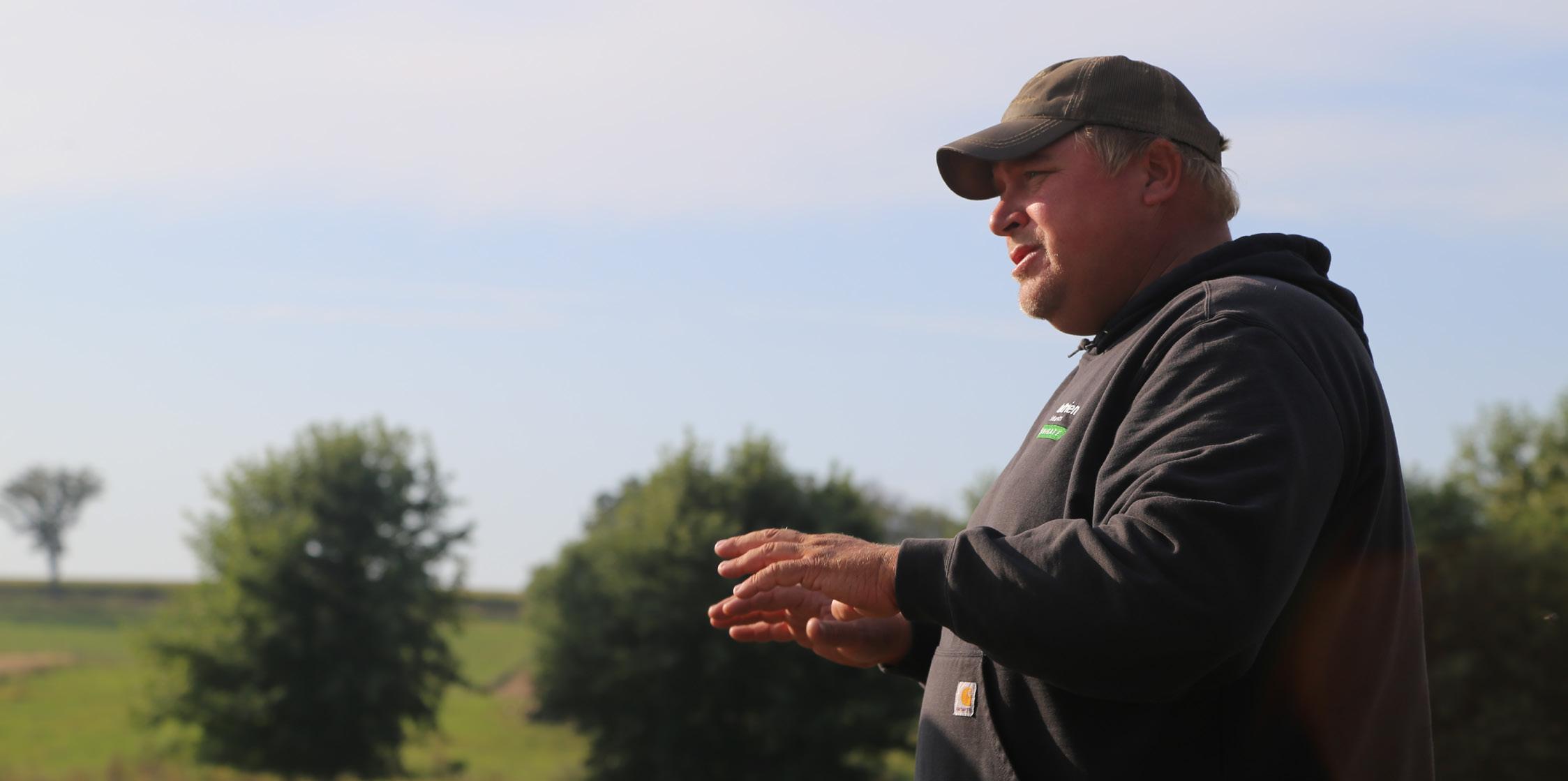

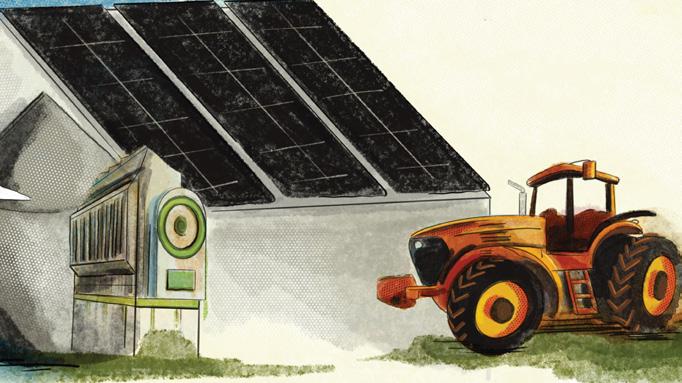
To meet global emission goals, communities big and small are assessing ways to reduce greenhouse gas emissions. Check out our new publications to learn how conservation can help lower our climate footprint.
» This new publication showcases Monroe County’s effort to mitigate climate impacts through conservation.

» We partnered with The Nature Conservancy, American Farmland Trust, and the Wisconsin Department of Agriculture to produce this new handout. This is a great resource to better understand emission pathways and management opportunities to support the Paris Accord goals of reducing emissions by 45% by 2030.
Download these publications at wisconsinlandwater.org/membershub/conservation-resources/ climate-resilience
Haley Nagle (CSU) presents on COMET-Farm.

Thank you to the Brico Fund for their support of this series!

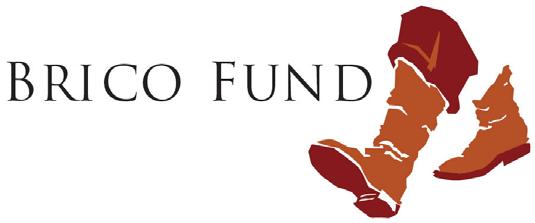
Throughout November we held a 6-session webinar series to learn and discuss climate projections, resource concerns, adaptation strategies, and how to communicate it all with diverse stakeholders.
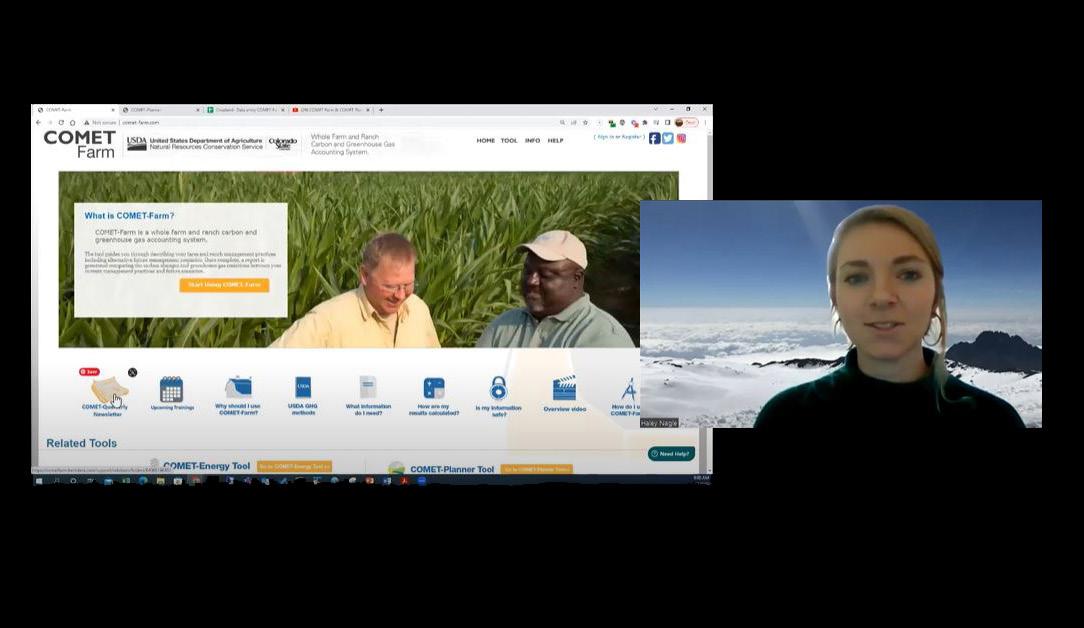
The series opened with an introduction to the USDA Midwest Climate Hub Other sessions included: Forest Impacts and Adaptation Strategies (NIACS), WICCI and Water Resources (DNR), Implementing Carbon
Farming (WI Land+Water), An Intro to COMET Farm (Colorado State University), and Communicating Climate to Diverse Stakeholders (WI Land+Water, Tunheim).
All sessions are now available in our On-Demand Library and through our climate resilience resource hub: wisconsinlandwater.org/ members-hub/conservationresources/climate-resilience/ conservation-and-climatewebinar-series.
We would like to thank our funders for supporting local climate action.
“Conservation
Explore our new County Climate Hub: wisconsinlandwater.org/members-hub/conservation-resources/ climate-resilience/climate-hub


Finding climate resources to help identify action at the local level can be overwhelming. The County Climate Hub is now available for our members to find reports and resources to help understand, plan, and implement climate change at the local level.
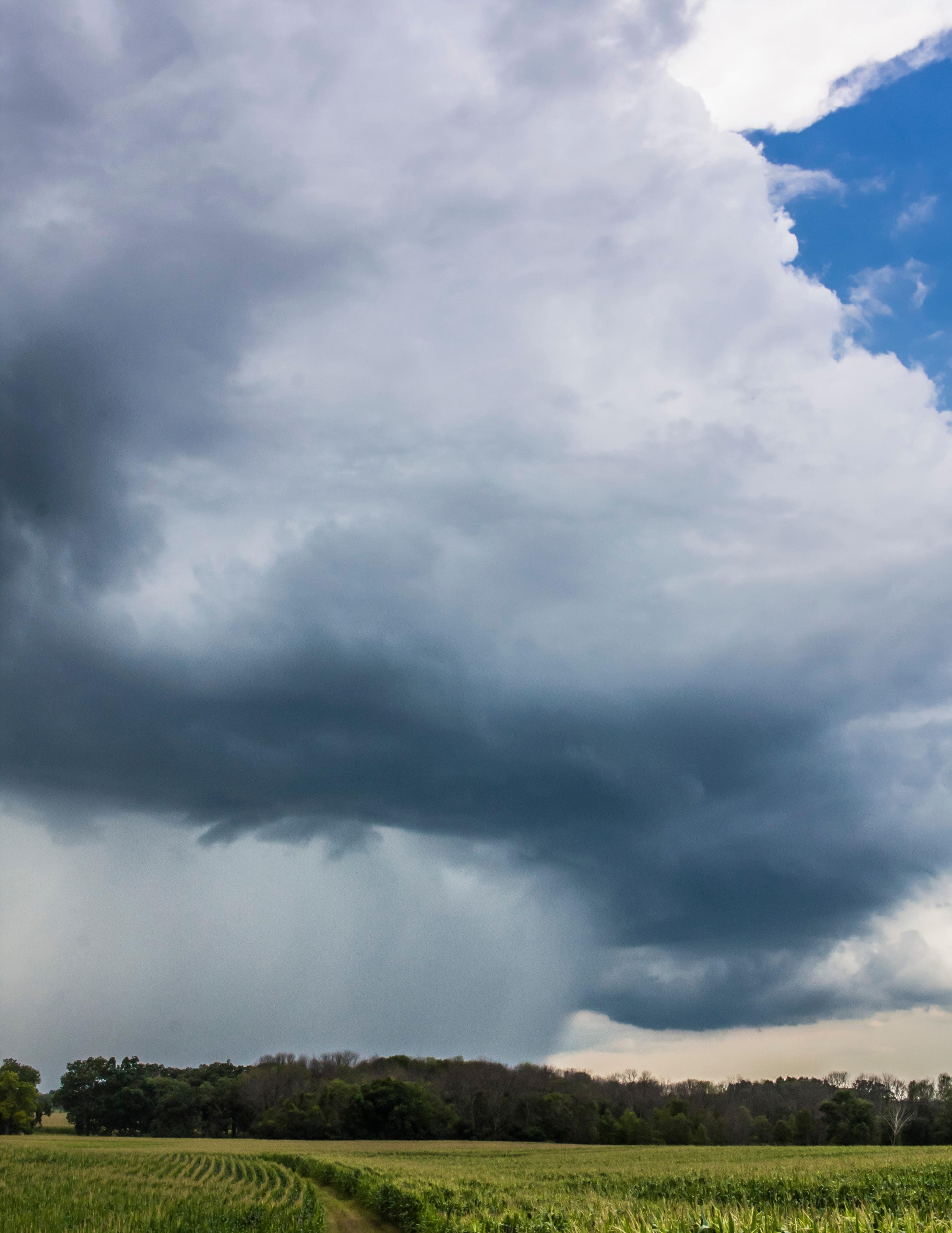
From WICCI to the IPCC, these state, federal and global reports provide climate predications and mitigation strategies.
Connect with partners to find technical support for implementing a variety of climate-smart practices on the landscape.
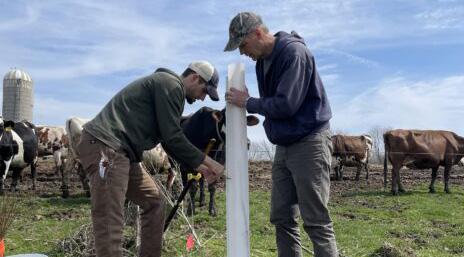
Learn more about the federal policy supporting climate action and stay updated available grant opportunities.
Please send your comments, questions, or go-to tools to: Christina@wisconsinlandwater.org

We have updated the look of the State Interagency Training Committee (SITCOM) materials, from the moment you learn about SITCOM through to the end of the trainings we host.
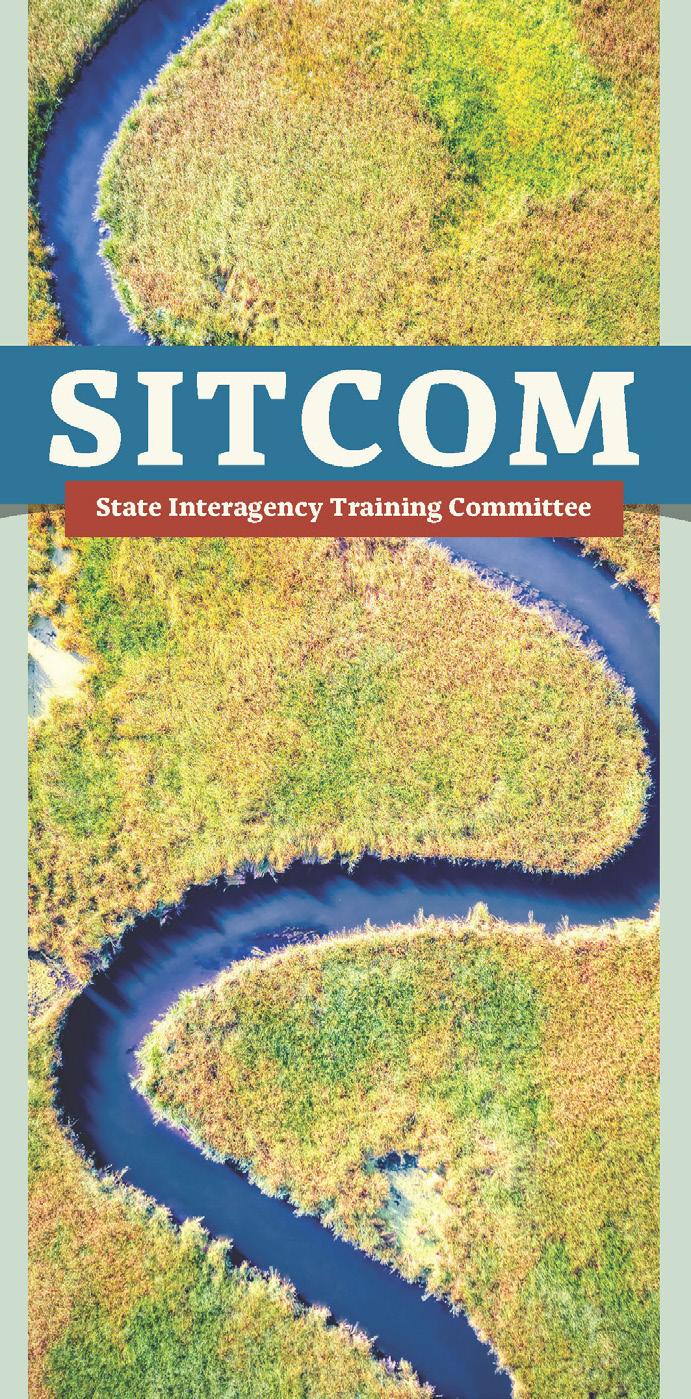
We are currently designing a brochure detailing the benefits conservationists across the state receive as a result of this partnership. SITCOM works at every step of the way to ensure welltrained conservation professionals in our state. Learn more about SITCOM, the Area Interagency Committees (AITCOMs), and how you can engage with us through the brochure, which will be available in early 2023.
If you have ever wanted biweekly reminders about upcoming trainings hosted by organizations in Wisconsin and nationwide, then you have likely
signed up for the SITCOM e-newsletter. We search around 100 websites in preparation for each e-newsletter so that we can share as many upcoming trainings opportunities and conferences as possible. We also highlight events that SITCOM and WI Land+Water host to ensure easy access to relevant, quality trainings. We updated the e-newsletter format, so check out our new look the next time it comes to your inbox. And keep an eye out for the fun subject line about trainings!
Lastly, our trainings also underwent a revamp. From the registration page to the post-training evaluation, we have refreshed their colors and layouts. These may be small changes, but we are excited to create a consistent look between all of our materials.
The Wisconsin Envirothon relies on the generous volunteer and financial support from county land and water conservation departments, dedicated public agencies such as the WI Department of Public Instruction, enthusiastic schools and many local and national businesses.

The 2023 WI Envirothon is scheduled for April 21, 2023 at Lions Camp in Rosholt, WI. We are excited to welcome teams back to our in-person event. The winning high school team will represent Wisconsin at the NCF-Envirothon at Mount Allison University in New Brunswick, Canada.
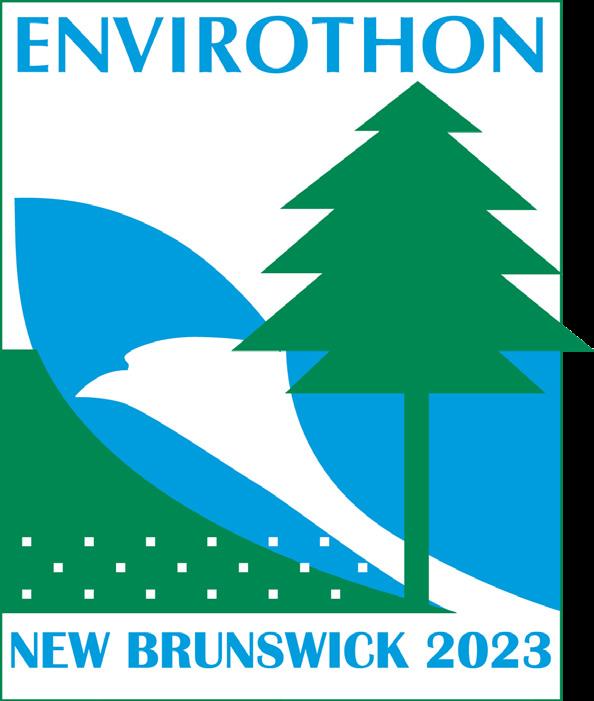
Students will learn about factors contributing to a changing climate, the effects of these changes on the environment and natural resources, and the unique challenges facing natural resource dependent communities.
If you are interested in getting a team going in your county, we have Envirothon Committee members that can help.
Registration will open in January or February and can be found at wisconsinlandwater.org/our-work/ youth-education/envirothon
Learn more about current sponsors and giving opportunities, visit our Envirothon Sponsors page online.
We are planning for another summer of hands-on learning in the outdoors at our two conservation camps.

MIDDLE SCHOOL CONSERVATION CAMP, held at Upham Woods in the Wisconsin Dells, welcomes students entering grades 6-8. We had 65 campers this year, and we’re hoping to expand our numbers to 70-80 students. This camp not only offers fun outdoor experiences, but also engages students in conservation education. We are currently recruiting camp counselors, especially male counselors. Camp dates are June 14-17, 2023.
Peyton Mueller, a junior at UW-Madison majoring in Life Sciences Communication and Community/Environmental Sociology, joined our team in October as our new Communications and Outreach Intern. Get to know Peyton through the interview below.

HIGH SCHOOL CONSERVATION CAMP, held at the Discovery Center in Manitowish Waters, accepts students entering grades 9-12. Many of our high school campers attended our middle school camp. This camp provides hand-on learning opportunities that connect students to conservation education and Wisconsin’s beautiful natural resources. Camp dates are June 19-22, 2023.
More details will be posted at wisconsinlandwater.org/ourwork/youth-education/conservation-camp
If you are a county that offers camp scholarship, please reach out to our intern, Peyton@wisconsinlandwater.org She is compiling information about camp scholarships so we can provide those details on our website for parents and students.
If you’re interested in developing a scholarship program, please contact Kim@wisconsinlandwater.org to connect with counties that have established camp scholarships.
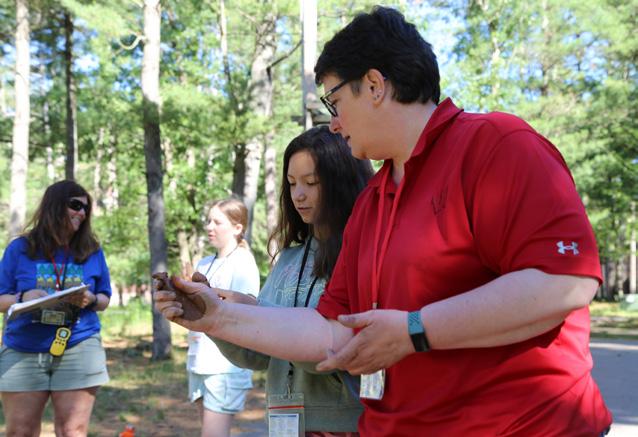
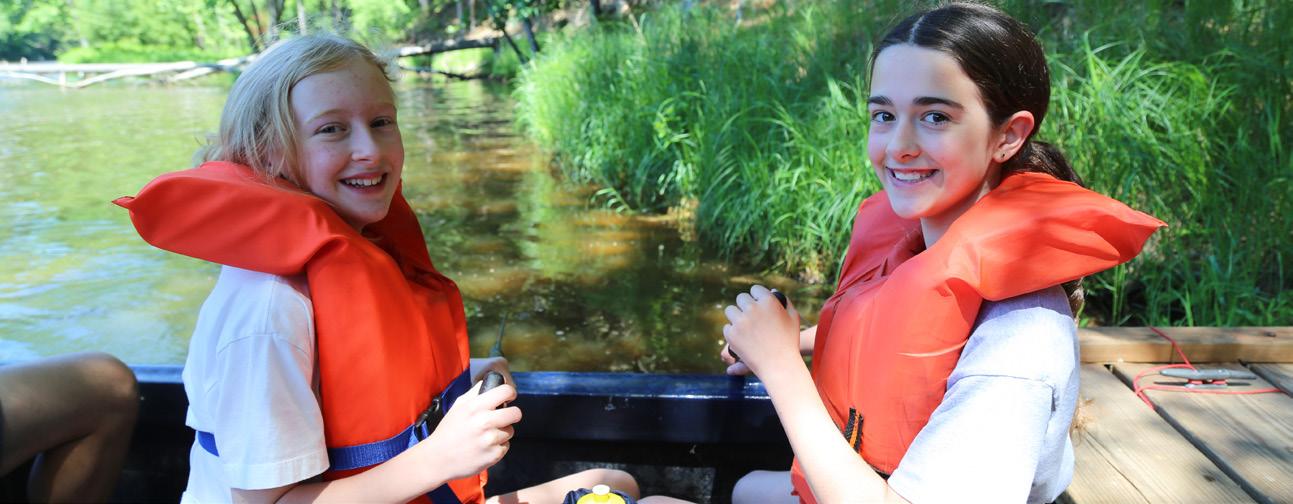
I grew up playing outside with my friends. My family also has gone camping and boating since I was young, and those memories in nature are my fondest. Since I was a young teenager, I have gone outside just to appreciate nature when I’m stressed or want to relax. So overall, I would say I have always connected with the outdoors. I want my career to make an impact in protecting each other and our environment, and working in conservation is an amazing way to connect with both people and land.
Like I said I love being outside, so I like to go for walks (not necessarily in Winter though). I also am a huge animal lover, so I take any chance I can get to play with either my dog or any of my friends’ pets.
My sister just moved to Colorado, so I have been traveling there a lot. I absolutely love hiking! The picture is of me (left) and my partner during the most amazing hike I have ever gone on.
There is still time to nominate a conservation champion who has gone above and beyond! We are excited to announce our new Conservation Legacy Award, which recognizes an individual who, through their personal dedication, commitment, and selfless service has made direct and lasting contributions to WI Land+Water, WI LWCDs, and most importantly, the citizens of the State of Wisconsin.
Additional awards include:
• Outstanding Conservation Employee (three categories)
• Outstanding LCC Member
• Friend of Conservation
• Brad Matson Outstanding Youth Educator Award
• Conservation Farm Family of the Year
Nominations are due by Dec. 31, 2022. Learn more at wisconsinlandwater.org/ conservation/awards.

Join us in March as we celebrate 70 years of connecting Wisconsin conservation professionals at our Annual Conference.
Our conference provides valuable networking opportunities, timely professional improvement breakout sessions, and a space to be inspired by the passion for conservation around the state. The conference kicks off on Wednesday, March 1, at 11:00am with our luncheon, youth speaking contest winners, and a keynote from Curt Meine, historian author of Aldo Leopold’s biography. Alonzo Kelly, a 2022 recipient of a Presidential Lifetime Achievement Award for Service, will deliver Thursday’s keynote as we learn the art of building meaning connections.
Our breakout session topics include agroforestry, groundwater, communication skills, sessions geared for newer employees, partnerships, technical roundtables, and much more! We continue to be amazed by the dedication and enthusiasm of our presenters, who are always excited to share their knowledge and experiences with our attendees.
For more details about the sessions, registration process or hotel, please visit: wisconsinlandwater.org/ conservation/annual-conference.

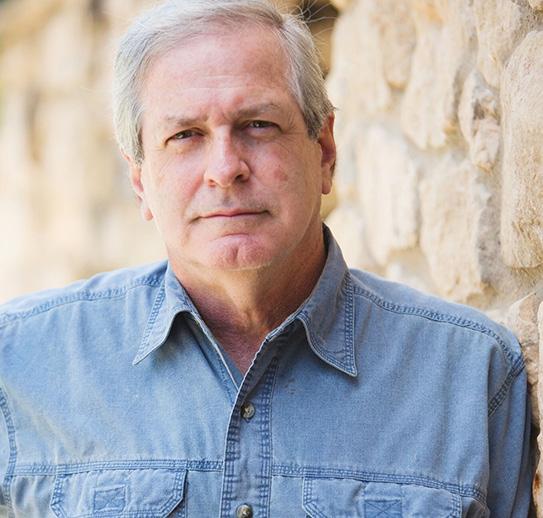
Conservation has always evolved to address emerging social and environmental realities. Aldo Leopold recognized this when he described the land ethic as “a product of social evolution,” occurring “in the minds of a thinking community.” Meine, author of the biography Aldo Leopold: His Life and Work and Senior Fellow with The Aldo Leopold Foundation, will explore new needs and directions that are shaping land ethics for the next generation.
Alonzo Kelly has gained international and global attention. He is recognized as one the nation’s leading experts on leadership development, strategic thinking, planning, and acting which results in individual and organizational goal achievement. Kelly will take attendees on a learning journey aimed at increasing knowledge and ability to utilize critical thinking skills to make authentic connections.

The 2023 Silent Auction will be back at the conference! Donated items should be brought to the conference for viewing, and bidding will take place online through the 32Auction. com app. Virtual bidding will expand our reach to audiences beyond our typical membership and allow for higher bidding, which will hopefully increase the amount of money raised for all our Youth Education programs. Last year, we started our new Middle School Camp at Upham Woods in the Wisconsin Dells. A new program means we have additional costs to cover in order to provide hands-on conservation opportunities to Wisconsin’s youth. Every dollar raised from the Silent Auction supports all our Youth Education programs.
Silent Auction materials can be found at wisconsinlandwater.org/ conservation/annual-conference. If you have questions or are interested in helping with the Silent Auction at the conference contact Megan Steckelberg at megan.steckelberg@co.adams.wi.us.
We are excited that our 66th annual Conservation Poster and Speaking State Contest will held in-person and kick off our conference during lunch on Wednesday, March 1, 2023.
The 2023 Poster theme is: One Water
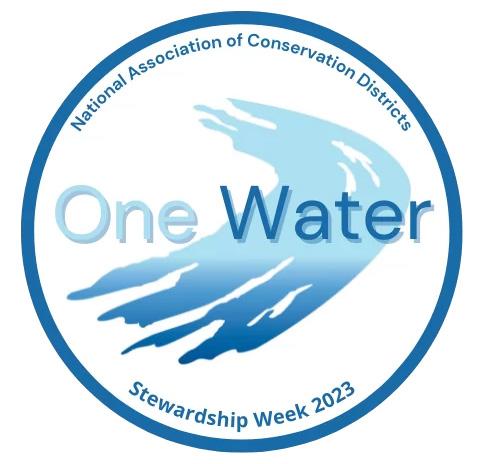
LEARN
NETWORK with your colleagues from across the state.
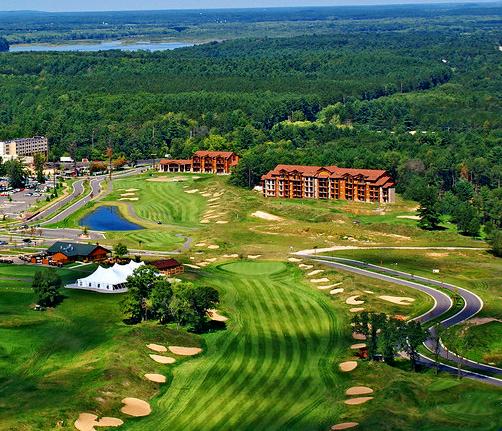
CONNECT with other passionate conservation professionals.
Area poster and speaking winner information needs to be submitted by Wednesday, February 8, 2023
Submission forms and information can be found at wisconsinlandwater.org/ our-work/youth-education/posterspeaking-contest
the latest conservation practices and programs.
The Wisconsin Department of Natural Resources (DNR) updated Technical Standard 1002 Site Evaluation for Storm Water Infiltration. This technical standard was changed to update the qualifications and drawings for more clarity and consistency with other technical standards. The updated Technical Standard 1002 Site Evaluation for Storm Water Infiltration is now available on the DNR’s Storm Water Post-Construction Technical Standards web page.
It was updated using the SOC Minor Process.
SOC work team members are a dedicated bunch. When a DNR, DATCP or NRCS technical standard is created or going through a substantial change, the agencies use the SOC Full Process.
This involves a technical work team (created from an open application process) of both public and private sector engineers, consultants and other technical experts with experience and expertise related to the conservation practice. The team commits to a common goal to collaborate in monthly meetings for a year or more!
And the work continues outside of the the monthly meetings. Team members also take on additional work such as conducting literature reviews, gathering and summarizing existing data, and reaching out to additional experts for input. These team members share, collaborate, negotiate in order to write and edit and revise the technical standard prior to publication. It’s a big commitment to be a SOC team member and the participants really exhibit a passion for their work. We greatly appreciate the dedication of our SOC team members.
We understand that not everyone is able to participate on a team, so we also seek public comments on technical standards as the draft is nearing completion. Coming soon, we expect to open the public comment period for an updated draft of NRCS 328 Conservation Crop Rotation.
If you’d like to learn more about the SOC process, you can see the chart below or view the recently updated SOC Technical Standards Process Handbook.
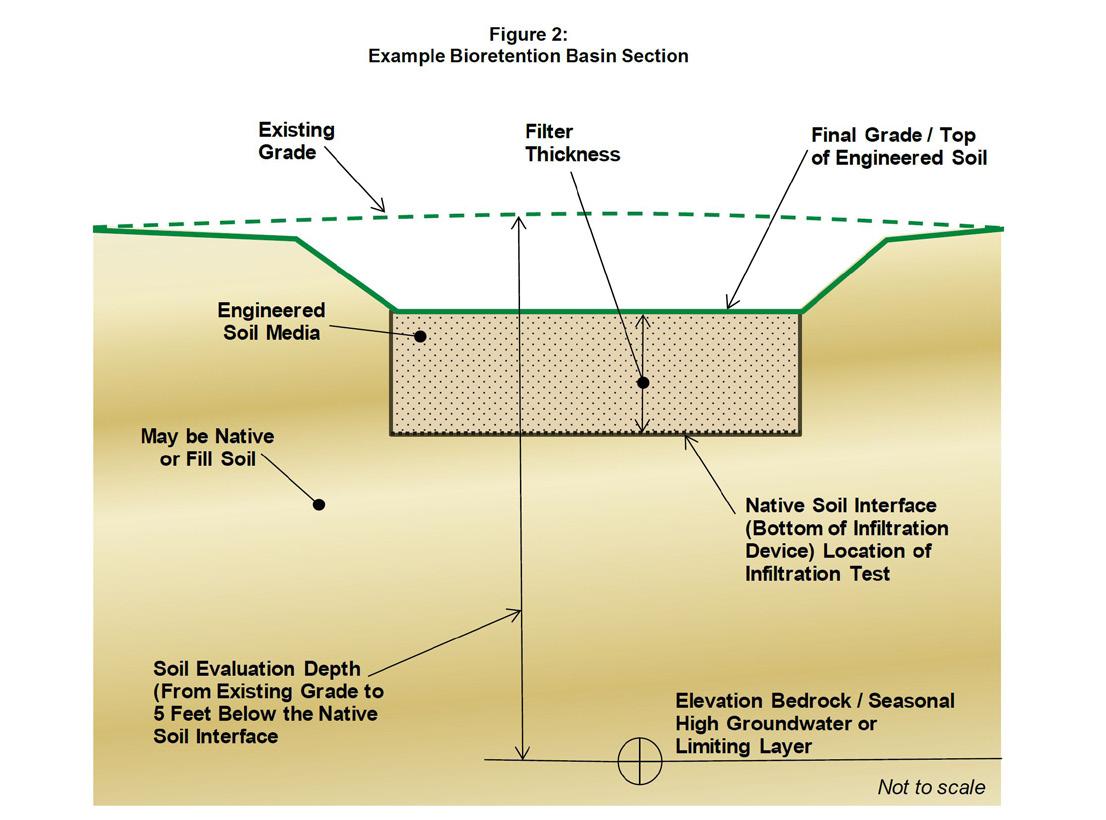
We encourage you to sign up for our SOC urban or agricultural email lists and learn more about technical standard work at socwisconsin.org.
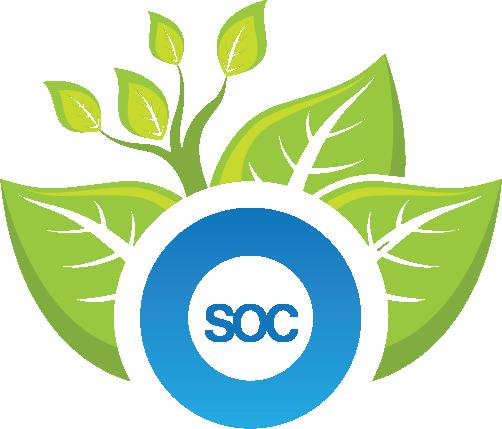
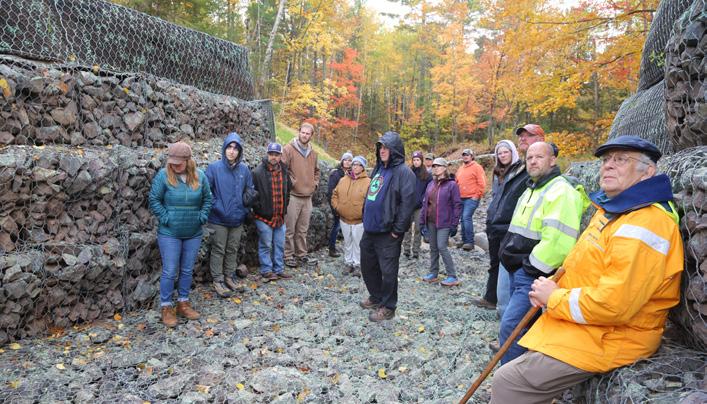
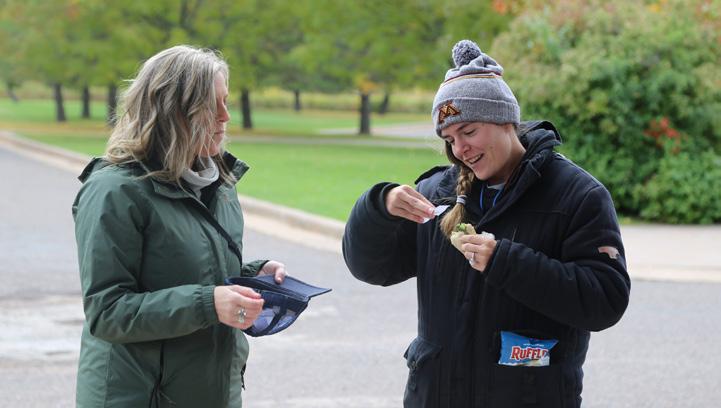
The 2022 Fall Tech Tour took place on a blustery fall day, but the rains and winds held off long enough for attendees to visit two sites: the UWSPNorthern Aquaculture Demonstration Facility and the Delta Dump project site.

At the UWSP-NADF, the group learned about several ongoing projects, including the Sustainable Aquaculture Systems- Supporting Atlantic Salmon (SAS2)program. Currently, 95% of salmon consumed in the US are imported, amounting to a $3.4 billion trade deficit. SAS2 research will look into the successes and challenges of a rapidly emerging innovative platform of salmon farming called Recirculating Aquaculture Systems (RAS), which are land-based and fully contained. UWSPNADF is currently researching out-ofseason spawning of Atlantic salmon to develop procedures that can be utilized by industry for egg production
throughout the entire year.
The next stop took the tour group to the Town of Delta. Bayfield County Technician Conservation Technician Travis Tulowitzky and DATCP Engineer Stacy Dehne led the group through a former landfill turned into a successful conservation project.
The Delta Dump site, a roughly 6-acre parcel now owned by the county, was closed and capped nearly three decades ago. However, in 2018 an intense storm led to a surge of water that rushed into the channel, exposing the former face of the landfill and taking debris and garbage along it.
The channel is an intermittent tributary to the White River, a popular trout stream just 1/4 of mile from the site.
The county knew they needed to repair the site, but to ensure the site could properly withstand future storms would require interdepartment collaboration
and a major source of funding.
Staff from Bayfield County Forestry Department, Land & Water Conservation, and DNR Stormwater and Solid Waste gathered a the site to asses the situation. The Forestry Department had secured some FEMA repair money for the project. Tulowitzky reached out to Dehne and together they proposed working on this project from a design standpoint. Although some FEMA funding had been secured, it only included enough money to stabilize the site, falling short of the funds needed to install mitigation practices. So they set out to demonstrate to FEMA the need for additional funds.
Dehne began working on a plan to show what could be accomplished with the available funds, while Tulowitzky prepared what they called “The Cadillac Plan” to show what could be done with additional mitigation funds. Part of this plan included the labor intensive installation of gabion baskets with 9-11 feet of tieback, which will help secure the rock filled baskets to the nearly vertical slopes of the channel.
After a long documentation and review process, FEMA did decide provide 75% of the funding for the estimated $600,000 project. The town and county will split the cost of the remaining 25%. The work is being completed by the county’s Highway Department.
To learn more about the Delta Dump project, look for the full length Conservation in Action story soon!
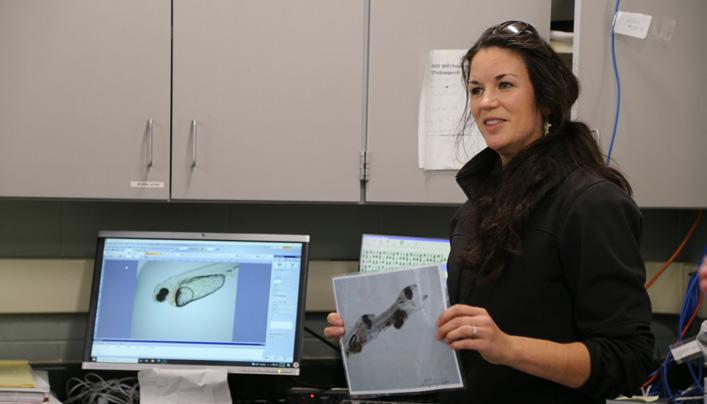
Learn how to support reluctant people and discover motivations embrace the science and the skills of understanding them.
When I became a public school teacher, I was motivated by my own experience as a reluctant learner. I spent more time and effort avoiding school than I ever spent engaged in class. I decided to teach in order to reach those students who, like me, wanted nothing to do with school. Walk into any classroom, and you’ll see at least one reluctant learner - a student with their head down, thoughts in the clouds, or eyes glued to their phone. Some look at the effort to reach these students and say, “It’s not worth it - you’re never going to reach everyone.” However, this effort is the most important part of being a teacher.
In the short time I have been in the world of conservation, I have heard many stories of the struggle to reach reluctant people. Whether it’s convincing a producer to adopt a conservation practice, persuading a landowner to care about their neighbor’s water quality, or inspiring community leaders to prioritize an environmental challenge, many conservationists have experienced first-hand what it’s like to do battle with reluctance. The answer is not to abandon these efforts or give up on these people. Instead, the answer is for conservationists to
At the recent Conservation Partnership Training hosted by Wisconsin Land+Water, Serge Koenig, a Conservation Technician with Sauk County, proposed a change in mindset, emphasizing the need for conservationists to lean into building relationships with local landowners and producers. Serge argued that communication skills were both an art and a science, and that success in conservation came from discovering the why within people. For Serge, only by tapping into someone’s greater purpose, be it the wellness of their family or their land, is it possible for conservationists to begin making progress towards conservation efforts.
Psychologist Abraham Maslow’s Hierarchy of Needs identifies a process for building these relationships and tapping into one’s motivations (their why). At the base level, people are motivated by the need to live, obtaining food, sleep, and shelter (physiology). Beyond that, they are motivated by potential deficiencies, such as income or job security (safety), friendship (love and belonging), or respect (esteem). Those that have these deficiency needs met are then motivated by self-actualization - the growth and
desire to pursue fulfillment through their own creativity, moral purpose, or to uphold their feelings of belief or justice (Johnson, 2010). But how are conservationists supposed to know whether a landowner’s basic needs are deficient? “This all sounds great, but it’s just not realistic,” some might say. The truth is that you can learn to do this, and it is the most important part of being a conservationist.
The method of determining these motivations is through communication, and most importantly, by listening. Learning to know and understand the people you serve is essential to determining the roots of their motivation, and that relationship is built through communication. Continually ask yourself, does this person feel safe? Do they trust me? Have I shown them they are valued? Once you’ve built a relationship with them, focus on what motivates them - what is their why?
Over the course of your career, you will build important relationships with the people of your community. If you take special care that these relationships are built upon a foundation of trust and understanding, as Serge Koenig says, the conservation part will come along for the ride.

To help you get started, below are some communication strategies to begin your journey towards better understanding people, using Maslow’s Hierarchy of Needs.
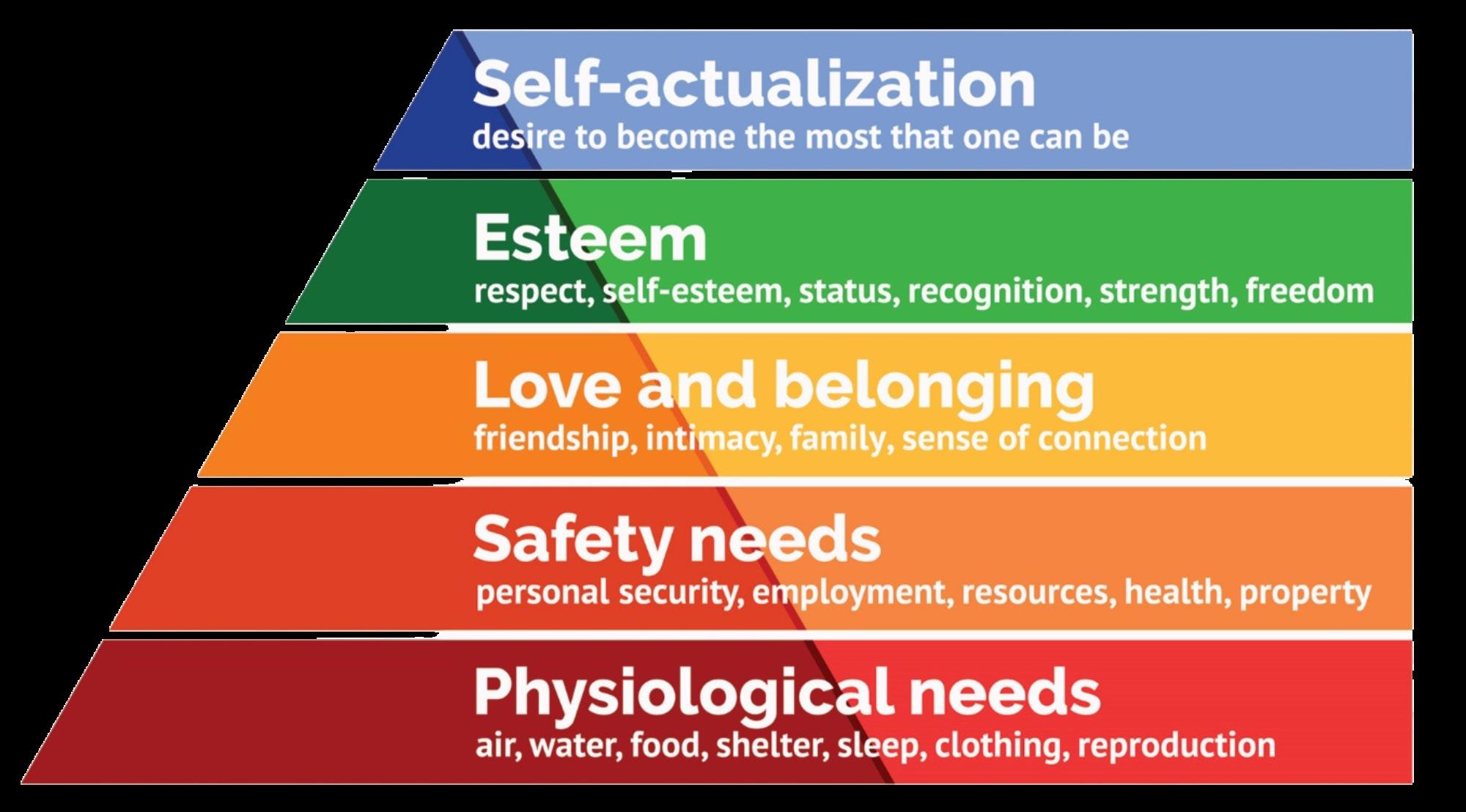
When you arrive on site or meet a landowner, consider these actions and attitudes that can help you cultivate feelings of security and acceptance:
• Be well-prepared and have a plan before you meet them
• Use predictable routines, including when and how you arrive and what you wear
• Be consistent with your expectations and desired outcomes
• Praise desired behaviors instead of criticizing for undesired behaviors
• Key Attitudes: accepting, nonjudgmental, pleasant, and nonthreatening
• Develop your plans and ideas based on background knowledge and information
• Focus on the person’s strengths and assets
• Set realistic and attainable goals and celebrate achievements
• Be alert to difficulties and intervene as soon as possible
• Be available and approachable so people feel comfortable coming to you for help
• Get to know them, their likes, dislikes, and concerns, and ask them questions
• Be available for those in need, always respond and follow up in a timely manner
• Value a persons’ thoughts, opinions, and judgments
• Encourage cooperation and sharing of ideas
• Key Personalities: empathetic, considerate, interested in the person, patience, fairness
• Develop your plans and ideas based on background knowledge and information
• Focus on the person’s strengths and assets
• Set realistic and attainable goals and celebrate achievements
• Be alert to difficulties and intervene as soon as possible
• Be available and approachable so people feel comfortable coming to you for help
Want to practice applying these skills in the field? The State Interagency Training Committee (SITCOM) is sending out a statewide training needs assessment in February 2023, and there will be a section specifically addressing communication skills. Let us know how we can support you!
A dedication ceremony for the 1,000th dam was held on the Holst Farm in Diamond Bluff in November. Those in attendance included members of the county board, earth work contractors, and previous conservation staff. LCC Chair Jerry Kosin (right) presented Jeff Holst (left) with a certificate celebrating the momentous occasion.
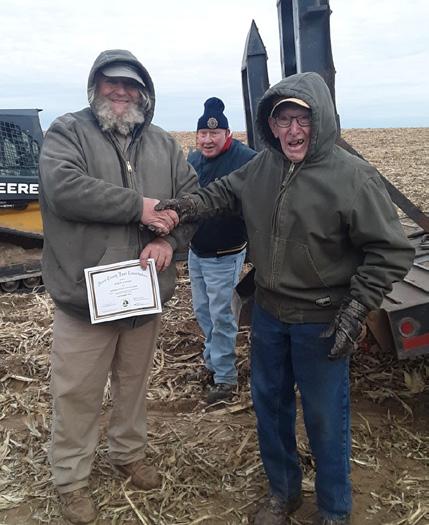
“A ‘chiliad’ is a word that describes 1,000 rare things— and 1,000 dams, places that citizens of our county cared enough to do something about, that has impacts for generations to come and that’s rare,” said Retta Isaacson, conservation program specialist for Pierce County LCD. “We are so thankful for all the landowners, engineers, and contractors who made our chiliad possible.”
As we come to the close of another year, let’s revisit Aldo Leopold’s encouraging words about taking in this snowy season in Sand County Almanac’s closing, December:

“It is in midwinter that I sometimes glean from my pines something more important than woodlot politics, and the news of the wind and weather. This is especially likely to happen on some gloomy evening when the snow has buried all irrelevant detail, and the hush of elemental sadness lies heavy upon every living thing. Nevertheless, my pines, each with his burden of snow, are standing ramrod-straight, rank upon rank, and in the dusk beyond I sense the presence of hundreds more. At such times I feel a curious transfusion of courage.”
Learn more about Pierce County’s dams, view the interactive StoryMap.
Wetland restoration helps Wisconsin “slow the flow” to the Great Lakes
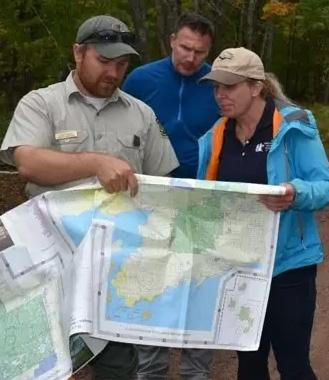
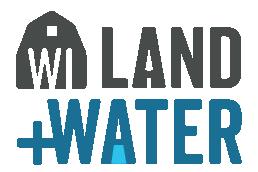
“Slow the flow” is a common mantra among Wisconsin’s conservation partners. This means implementing a variety of conservation practices across the landscape to help reduce and filter runoff caused by heavy rains and storms. These practices slow down the flow of water across the landscape, capturing sediment and pollutants carried by runoff that can harm water quality and habitat. One way to slow the flow is by restoring wetlands. In northern Wisconsin, the Ashland County Land & Water Conservation Department has restored 101 acres of wetlands near Lake Superior since 2001.
Read this story on the National Association of Conservation District’s blog.
From hosting fourth-grade students to field days, Washington County farmer, Ross Bishop is working to educate the community on the benefits of no-till practices. In the spring, Bishop and neighboring farmer, Charlie Jones, welcomed hundreds of 4th graders for the 25th National Ag Day Farm Tour. In the fall, Bishop hosted the Cedar Creek Farmers’ Healthy Soils = Profitable Farming field day, which bought together farmers to share their passion for no-till, cover crops, healthy soils, and cleaner waters.
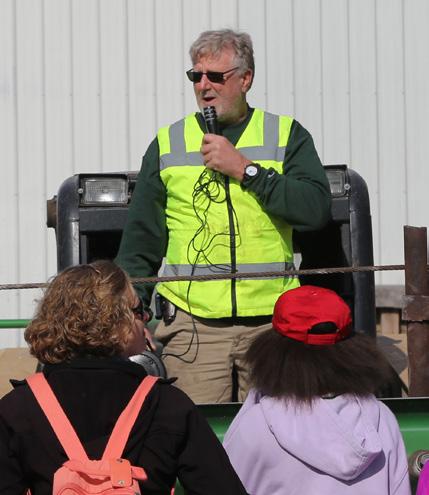
Thanks to Patrick Blasius for the videos (linked above) of these field days!
wisconsinlandwater.org 121 S. Pinckney St. #420 Madison, WI 53703 (608) 441-2677